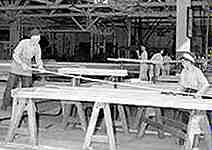Current Assumptions
 Our current search for solutions still
takes the affluent society as its context. We inherited a model of society in which all is
subordinate to economic growth. Our culture, like our paper and wood, is mass produced;
our children learn that individualism is the greatest good, that personal achievement and
private accumulation are the highest goals toward which a human being can strive. These
things will change in time simply because we cannot continue to consume: we will either
learn to work together to support society and ecosystem, or we will die out. The economic
model that has guided western society for several centuries offers no lasting basis for
sustainability. (Marchak, & Franklin, 1997, p. xi). "Granted with permission from The Rain Forests of Home, P.K.
Schoonmaker, B. von Hagen, and E.C. Wolf, © Ecotrust, 1997. Published by Island Press,
Washington DC and Covelo, CA. For more information, contact Island Press directly at
1-800-828-1302, info@islandpress.org (E-mail), or www.islandpress.org (Website)."
Our current search for solutions still
takes the affluent society as its context. We inherited a model of society in which all is
subordinate to economic growth. Our culture, like our paper and wood, is mass produced;
our children learn that individualism is the greatest good, that personal achievement and
private accumulation are the highest goals toward which a human being can strive. These
things will change in time simply because we cannot continue to consume: we will either
learn to work together to support society and ecosystem, or we will die out. The economic
model that has guided western society for several centuries offers no lasting basis for
sustainability. (Marchak, & Franklin, 1997, p. xi). "Granted with permission from The Rain Forests of Home, P.K.
Schoonmaker, B. von Hagen, and E.C. Wolf, © Ecotrust, 1997. Published by Island Press,
Washington DC and Covelo, CA. For more information, contact Island Press directly at
1-800-828-1302, info@islandpress.org (E-mail), or www.islandpress.org (Website)."
Photo: Courtesy of British Columbia
Archives, Province of British Columbia (www.bcarchives.gov.bc.ca). Call #I-28051.

